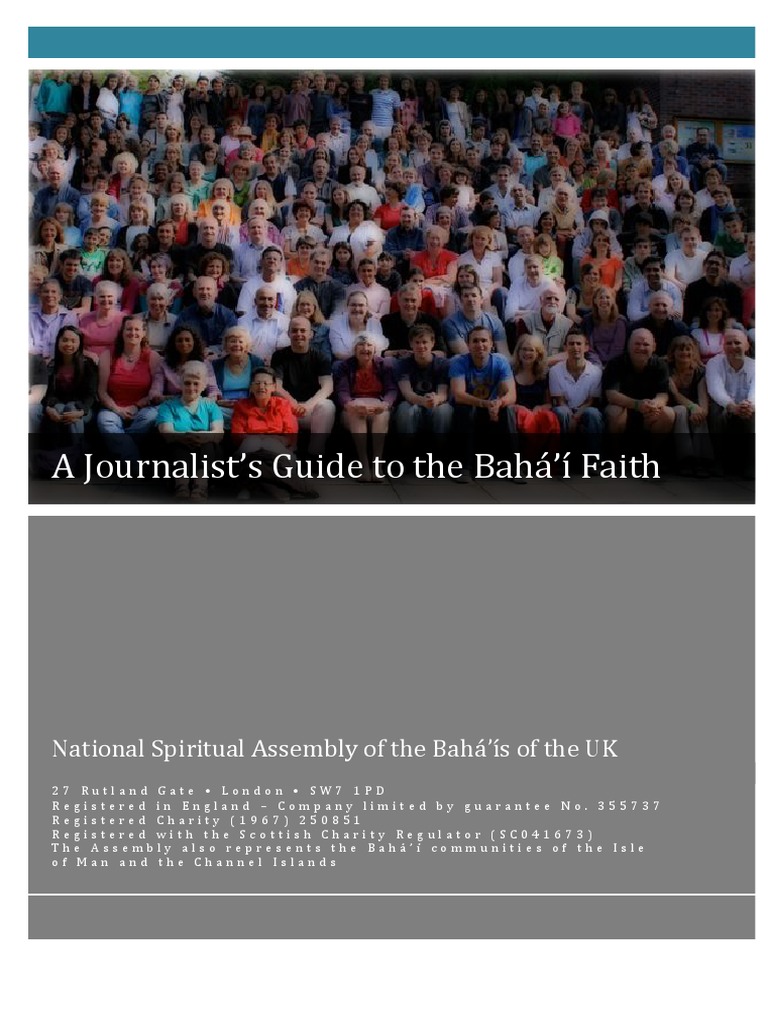The Bahá’í Faith, a relatively young world religion founded in the mid-19th century, is distinguished by its emphasis on the unity of humanity, the pursuit of justice, and the acknowledgment of the oneness of all religions. This comprehensive perspective captivates the curiosity of many, offering profound insights into the nature of existence, human interaction, and the divine. This guide delves into the essential teachings of the Bahá’í Faith, illuminating its key principles and addressing common observations that often pique interest.
1. Fundamental Principles of the Bahá’í Faith
The bedrock of Bahá’í teachings is encapsulated in its core principles, which revolve around the themes of unity, justice, and peace. Primarily, the concept of the oneness of God stands paramount. Bahá’ís believe that God, the unknowable essence, has revealed His will through a series of divine messengers, known as Manifestations of God, including figures such as Abraham, Moses, Jesus Christ, Muhammad, and Bahá’u’lláh, the founder of the Bahá’í Faith. This progression reflects a continuous revelation, underscoring the idea that no single religious tradition holds exclusive truth.
Moreover, the principle of the oneness of humanity posits that all people, regardless of race, nationality, or creed, are interconnected. This belief fosters a sense of global solidarity, motivating Bahá’ís to actively promote social justice, eliminate prejudice, and advocate for the welfare of all. In this light, the teachings challenge societal norms that perpetuate division, inviting followers to engage in collaborative efforts toward a harmonious world.
2. Social and Ethical Teachings
Central to Bahá’í teachings is the imperative for justice. The Faith advocates for the establishment of a global society characterized by moral rectitude and equity. This incorporates the acknowledgment of the intrinsic dignity of each individual, necessitating the eradication of social inequalities. The Bahá’í writings emphasize the importance of education as a fundamental means to empower individuals and foster informed and responsible citizenship.
Furthermore, the ethical guidelines espoused by the Bahá’í Faith place significant emphasis on the development of character, promoting virtues such as honesty, integrity, and humility. Such traits are seen as essential for personal development and essential for contributing to communal well-being. The Bahá’í teachings urge followers to cultivate spiritual qualities within themselves to effect positive changes in their societies.
3. The Role of Community
A distinctive aspect of the Bahá’í Faith is its organizational structure, which is intended to foster a spirit of unity and cooperation among its adherents. The Bahá’í community operates through a system of elected institutions, eschewing hierarchical clerical structures. This democratic governance model empowers individuals to take an active role in decision-making processes while emphasizing collective responsibility.
Community life is integral to the Bahá’í experience, providing a platform for individuals to engage in service-oriented projects, participate in study circles, and facilitate discussions on relevant societal issues. This collective engagement not only strengthens bonds among believers but also exemplifies the Bahá’í principle of action taken in collaboration and unity.
4. A Global Vision for Peace
The Bahá’í Faith is distinguished by its ambitious vision for a peaceful world. Central to this vision is the concept of universal peace, which transcends mere absence of conflict. Bahá’ís advocate for constructive dialogue, respect for diversity, and understanding as mechanisms for resolving global challenges. They believe that sustainable peace is achievable through the establishment of a global governance system founded on principles of justice and equity.
This transcendent ideal is grounded in the teachings of Bahá’u’lláh, who articulated the need for international cooperation and a global commonwealth. Bahá’ís are encouraged to engage in advocacy for peaceful resolutions to conflicts, thus aligning their actions with the Faith’s teachings and contributing to the greater good of humanity.
5. The Spiritual Dimension
At the heart of the Bahá’í Faith lies a deep spiritual ethos. The Faith promotes the cultivation of a personal relationship with God through prayer, meditation, and study of sacred texts. Bahá’ís are encouraged to explore their spirituality and develop a sense of purpose in life, viewing their existence as part of a grand tapestry that connects them to the divine.
Spiritual practices within the Bahá’í community are varied, encompassing both individual and collective elements. The daily practices include prayer and reflection, while collective gatherings for worship and devotion serve to strengthen community bonds and amplify a shared spiritual experience. This focus on spirituality is crucial for the holistic development of individuals, fostering inner peace and facilitating harmonious interactions with others.
6. Conclusion: The Allure of the Bahá’í Faith
The Bahá’í Faith stands as a beacon of hope and unity in an increasingly fragmented world. Its emphasis on the oneness of humanity, the pursuit of justice, and the embodiment of spiritual principles resonates deeply with individuals seeking meaning and connection in their lives. The Faith presents a compelling narrative that not only addresses pressing social and ethical issues but also encourages personal and communal transformation. As curiosity about the Bahá’í teachings continues to grow, so too does the potential for fostering a world defined by understanding, cooperation, and peace.
